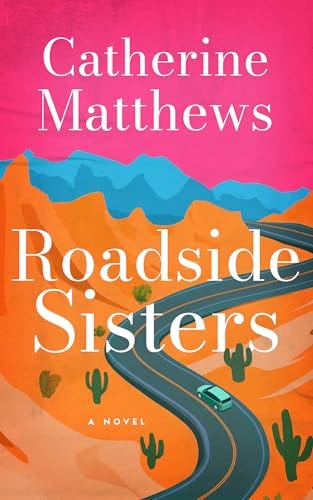Digging in with Joan Fernandez” is a weekly newsletter with ideas for you on shattering limits to reaching your true potential, told through bits from the life of Jo van Gogh (the woman that would not allow Van Gogh to die twice). Please sign up here.
I am immersed in book events so thought I’d bring back one of my favorite essays this week, posted about a year ago. I’ve edited it a bit because—astounding, isn’t it?—our pace of growth and change.
“That was 12 Joan’s ago.”
Yeah, what a phrase.
Thanks to a Rob Bell podcast. I’m trying it out. “That was 8 Joan’s Ago” or “That was 4 Joan’s ago.” To me, a light-hearted way to say, “Hey, I’m different than that incident/role/behavior you remember about me.”
Let me explain.
“That Was 12 Joan’s Ago”
Not long ago I was at an event where work colleagues got together—some I knew, some I didn’t— and a former executive I’d worked with leaned in with a laugh, “I warned some people here about you. You couldn’t keep people on your team.”
Ouch!
He drew back, embarrassed I’m guessing by my shocked face, because that was like “12 Joan’s Ago.”
It’s true there was a time when in floundering as a leader of teams, I had people leaving. But I figured it out, thanks to books and mentors and the associates themselves who gave me honest feedback. I own that; I regret that upheaval. Yet, I changed. Thanks to the teams, we went on to do great work. This guy’s perception of me hadn’t kept up.
It’s the Polaroid effect. People take a mental snapshot, stamp that photo in thought and presume we’re always stuck in that picture.
I’m not sure what his “warning” to others was all about. He probably meant it as a put-down, but I do believe that the reason this incident resurfaced in my memory for this essay was not about any potential insult, but rather how at the time it struck me as so incongruent to who I’d become.
That young leader “Joan" who made regrettable management mistakes had left the building a long time ago.
“That was 12 Joan’s ago.” I could have said then, with a little laugh. Help him catch up.
Something I like about this phrase is how it shows you own your past. “That was me all right.” No defensiveness. Own it with love and humility and, as Rob Bell says, fierceness too.
Ferocity because sometimes the way we’re remembered also serves that individual’s view of the world and how it operates. We gotta jar that view. They are stuck in a time that serves them and it hasn’t been updated.
Let me give a gentle example. I remember a conversation I had with my mother-in-law. We’re in her one-bedroom apartment in a retirement facility. My MIL had immigrated to the States from Cuba in the 1950’s. By then, she’d spent more years in the U.S. than her native Havana. It’s a Saturday morning. My husband is putting away her weekly grocery request about ten feet away in the kitchenette.
By then, we’d put our kids through college and I’d worked myself up in my organization, plus my husband was a senior executive.
I’m kneeling by her recliner, practicing my Spanish in an everyday conversation when she suddenly shakes her head. “Lo siento por ti, Joan, eres pobre," she laments.
Puzzled, I switch to English. “Mami, you’re sad for me? You think we’re poor?” I glance at my husband. He shrugs his shoulders.
She sighs and says, “You have to work.”
What?
Perhaps she recalled the years I’d been a stay-at-home mom when the kids were little, but that young mom—full of plans for playdates and toilet training and neighborhood potlucks—was easily 20 Joan’s Ago.
Another state, another chapter in life, a young woman with no idea what lay ahead.
Not the Joan my MIL was patiently talking in Spanish with. The Joan who knelt by her chair with chapters of life experiences my MIL couldn’t fathom since her frame of reference was a cultural framework of women and their roles that hadn’t budged much even though she’d lived through decades of two feminist movements, redefining the contributions women make to society.
It was a loving lesson to me of being stuck in time. When someone thinks of me as that Joan from the past, it’s not just a Polaroid snapshot then, but also their worldview reflecting back to them how things ought to be.
And that can be scary for them to let go.
That’s why ferocity is important. “That was 20 Joan’s Ago.” Let that concept of me go, and see the me in front of you now.
Worldview Is Such a Treasure Trove in Historical Fiction
I have some fun with these ideas in my book. Showing how a character changes over time (character arc) is Writing Craft 101. In storytelling, we expect—in fact, we even root for the character— to change. One of the small examples I use is how Jo’s childhood BFF Anna grapples with trying to calibrate the old and new Jo.
By necessity, Jo van Gogh (the famous artist’s sister-in-law) must step up and create a new identify for herself to tout Vincent’s art when neither society, decorum, tradition, nor culture support her. For a time, Anna who is the product of her time (as we all are) draws away. She can’t reconcile the “10 Jo’s Ago” snapshot she holds in thought with this new Jo who is a single mother and boardinghouse manager and, strangest of all, art promoter.
In time (spoiler alert), they reunite, and you know what? Anna changes too. Yes, this is fiction, but I’m hoping it illustrates some of the impact of recognizing “10 Jo’s Ago” in another.
Accepting another’s changes cracks the door open toward giving us grace to allow for change in ourselves too.
Change Is Hard
Aldous Huxley said, “In wisdom gathered over time I have found that every experience is a form of exploration.”
I’m obsessed with exploring the themes of growth and change. No doubt some of it is a reaction against the societal rigidity at least the media pundits keep railing about.
Are we really that stuck?
I think there’s space to continue to stretch, open ourselves in empathy to understand where and how another person came to their worldview. Be willing to question, think critically about assumptions and declarations and recognize that—if we choose it— we’re on a path of continuous discovery.
What about you—are you different than a year ago?
Warmly,
P.S. Shout-out to
and the recommendation for Saving Vincent plus my friend ’s masterful Solitary Walker: A Novel of Mary Wollstonecraft in their Fascinating real-life women, fascinatingly fictionalized wonderful essay.My book
Saving Vincent, A Novel of Jo van Gogh, is about the woman that would not let Van Gogh die twice. This biographical historical novel is based on a true story.
In the early twentieth century, a timid widow—and sister-in-law of the famed painter—Jo van Gogh takes on the male-dominated art elite to prove that the hundreds of worthless paintings she inherited are world-class in order to ensure her young son will have an inheritance.
Book Recommendations and Reviews Showcasing Big Character Changes
Preorder on Catherine Matthews' website (coming May 21!)
Open road, windows down - exhilarating sister journey
Catherine Matthews’ Roadside Sisters opens with jolt. Molly, one of three sisters announces gut-wrenching news: She has terminal cancer. The one thing she wants before she dies is for her two estranged sisters—eldest sister Penelope and youngest sibling Scottie—to reconcile. It’s a charged request. Their bitter alienation runs deep and feels intractable. The only thing they have in common is love for their middle sister, Molly. With this brilliant lift off, the novel takes flight . Matthews has crafted a tight, fluid, bursting narrative. No word is wasted as the track of each woman’s emotional scars comes to the surface. As misunderstandings and betrayal buried decades before are painfully unearthed, Molly’s simple idea that reunion alone can heal old wounds between Penelope and Scottie quickly unravels. Instead, her wish ignites a reckoning. Each sister must come to terms with the stories they’ve lived by as a result of the family’s traumatic past. One of my favorite scenes is when Penelope, a highly-competent workaholic lawyer, takes down a misogynistic boss by refusing to be bullied. When she stands up for herself, it’s exhilarating! And it’s a necessary step for even as we root for the warring sisters to stop rejecting each other, we feel their struggle to throw off past misconstrued events and try to redefine their lives. Roadside Sisters was like hitting the open road with the windows down, a completely satisfying and exhilarating journey from start to finish.
Order on Leah Fisher's website
Honest, vulnerable true account of a surprising experiment
OK I’ll admit it. There’s a little curious voice inside of me that dove into this book wondering, “What’s this about? Maybe I could. . “ because I think many married couples meander in the territory of what it would be like to be temporarily decoupled. This gem of a memoir gives an inspiring response. It’s an honest, vulnerable true account of a year in which the author traveled while her spouse remained at home working (joining her from time to time), ultimately enriching and deepening their relationship. Look at this itinerary: Costa Rica, Guatemala, Bali, Columbia, Cuba. Sights, sounds, people come alive in Fisher’s colorful descriptions. I was captivated.







I enjoyed the "12 Joan's ago" comparison. How many times I've thought something similar. This is much more catchy. I also like the book recommendations based on a theme.
Thanks for the shoutout!